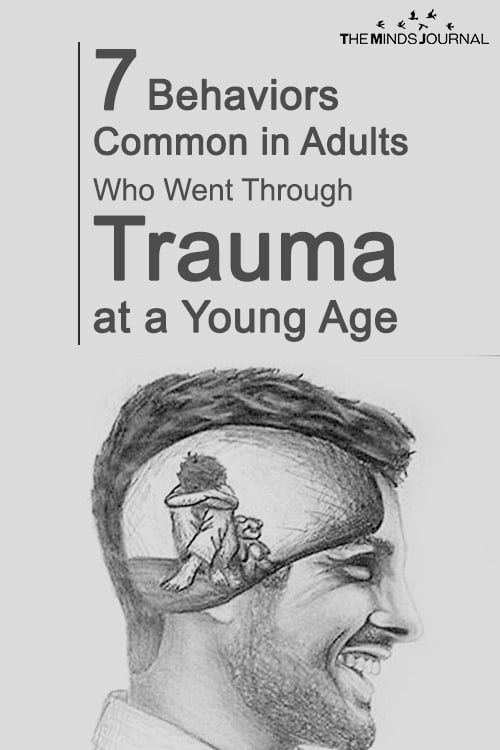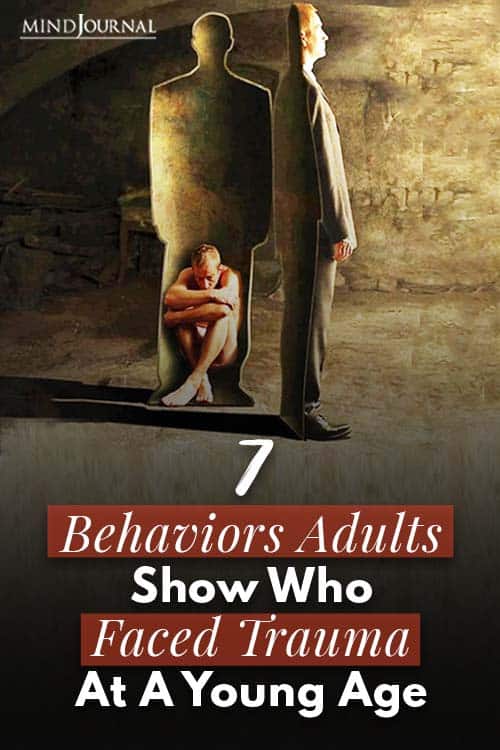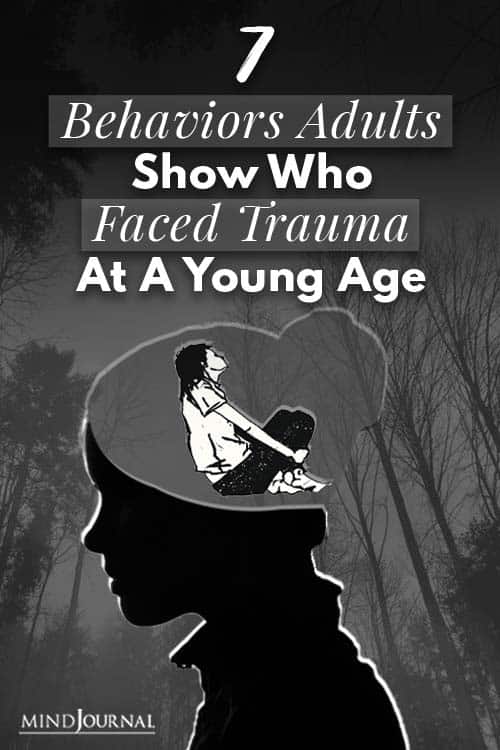Trauma At A Young Age
I don’t carry any early childhood trauma around with me, if that’s what you’re hinting at. The story of the bicycles – and there were three of them which were stolen from me – I’ve dealt with it well – Angela Merkel
Childhood trauma
Many adults are forced to deal with the trauma they experienced as children throughout their lives. The intensity of a traumatic incident varies from person to person. Childhood trauma can range from a crippling fear of abandonment to abuse and anything between the two.
Many adults are forced to deal with the trauma they experienced as children throughout their lives.
This article will hold true for whoever has had to face something traumatic as a child.
Sometimes, we just hide things because that’s easier than actually dealing with them. We even do this unconsciously in order to protect ourselves at the time. But it is important to deal with these issues so that we can finally be free of that burden.
7 characteristics shared by people who went through trauma at a young age
1. Recurring panic attacks
Those who have had to deal with trauma early on in life often struggle with anxiety as they grow older.
They find it hard to process a lot of things in one go. Whatever they suffered as kids still influence them by making them extra jumpy. They’re always looking over their shoulders because they see the whole world as threatening. This is why they often get panicky even when they know that there really is no cause to panic in that situation. They have to suffer through panic attacks every time they deal with even the slightest bit of stress.
Related: 4 Ways That Childhood Trauma Impacts Adults
2. Poor risk-taking ability
Any traumatic experience as a child can completely transform the rest of your life. You’ll be anxious because you want to be sure that you’ll never be in a situation like that, or in a situation similar to that, ever again in your life. This makes you extra careful at all times and unwilling to take risks, even if you know they’re important.
You like to stay where you are comfortable even if it means that you’re holding yourself back from realizing your full potential. You just complete all the tasks that are necessary to get by but you don’t push yourself to be the best version of yourself that you can be.
Related: How We Are Changed In The Aftermath Of Trauma
3. Being overwhelmed by fear
Trauma can hurt you a hundred different ways, some of which you may not even realize till you’re much older. Part of this experience is the phobia you develop of certain things because your mind associates them with the pain you had to go through. It could be anything from the fear of a certain kind of alcohol to more crippling fears like that of being inside a moving vehicle and so on.
It’s important to try and win over this fear before it begins to control every aspect of your life. We never know when we’ll run into something that can trigger us so it is better to try and work through our issues because we actually know that those things don’t have the power to hurt us anymore.
Related: 9 Warning Signs You’re Mentally and Emotionally Exhausted!
4. Becoming a recluse
When you’ve been through so much, sometimes it’s easier to just hide yourself away from the pity, the sympathy, the blame, and all the other emotions that the rest of the world will try to project on you, even if they are not close to you.
You might hate the pitying glances or you might fear others passing harsh judgments on you. By ensuring that you only go out into society when you absolutely need to, you hide yourself from the prying eyes of everyone else. This is called a social anxiety disorder and don’t forget that you can always seek help for it.
Related: Can Trauma be Passed on through our DNA?
5. Becoming passive-aggressive
It’s usually easier to beat around the bush rather than directly confront the cause of your problems. When people are too scared to do the latter, they spend a lot of time trying to repress the anger and resentment that has taken hold deep inside them.
While they may be successful at times, some of it will eventually start to find its way out. They might not be ready for the direct confrontation but they start dealing with it in a passive-aggressive manner in an effort to remain subtle while getting their point across. They might think that they’re avoiding negativity but they’re just lying to themselves.
Related: Growing Through Trauma: How To Not Let A Bad Childhood Define Your Life
6. A state of constant tension
That childhood traumatic experience probably ended a long, long time ago but some people have a hard time letting go. They’re well aware that their circumstances have changed but they’re always preparing for those problems to come back, some even unconsciously so. Their brain is stuck on the principle of flight and fight and this causes a good deal of internal conflict.
They are in a state of constant tension which keeps them from living life as it should be lived. They are never carefree about anything. This is usually seen in survivors of physical abuse but it also occurs in those who have had breakdowns due to being overstressed.
Related: Healing Trauma: How Your Brain Hides Painful Memories
7. Victimizing themselves
This is what happens when the victim of some form of childhood trauma becomes too used to that role. They’ve been treated as a helpless victim for so long and by so many that they actually start to believe it.
But once the attention passes, they are left lonely, feeling like they are just floating around alone in life. They try to deal with it by further embracing the role of the victim. They find it safer to take orders rather than to give them. They’ll obey even if they don’t agree with the order they’ve been given. They feel much safer this way.
“Dissociation is the common response of children to repetitive, overwhelming trauma and holds the untenable knowledge out of awareness. The losses and the emotions engendered by the assaults on soul and body cannot, however be held indefinitely. In the absence of effective restorative experiences, the reactions to trauma will find expression. As the child gets older, he will turn the rage in upon himself or act it out on others, else it all will turn into madness.”
― Judith Spencer
If you could relate to the post, let us know in comments and feel free to share it with your friends and folks.
Watch this video on childhood trauma and its tangible effects on brain development
The Minds Journal Articles Volume -1 is Copyright Protected vide Regd.# L-103222/2021













Leave a Reply